Data Story: 14.59% rise in pupils registered for the certificate of primary education examinations this year
The previous year, 60,714 enrolled for the exams, comprising 34,505 males and 26,209 females. This year, 69,573 candidates, 38,575 males and 30,998 females, registered.
Writer: Emmanuel Bida Thomas
This year, pupils in schools across South Sudan will write their Certificate of Primary Education (CPE) examinations for the academic year 2023 from 20 November 2023 to 24 November 2023.
The Acting Minister of the Ministry of General Education and Instruction, Martin Tako Moyi, said in a press statement on 18 October 2023 that 69,573 candidates, 38,575 males and 30,998 females, have dully registered for the examination, which began on Monday, 20 November 2023.
However, compared to the previous year, when 60,714 candidates, including 34,505 males and 26,209 females, registered, this year’s number shows a 14.59 per cent increase in the number of candidates.
Male candidates increased by 4,070 from 34,505 in the 2022/23 exams, and female candidates also grew by 4,789 from 26,209 the previous year.
The increase in male candidates accounts for 11.80% of the rise, while the increase in female candidates accounts for 18.27%.
| 2017 – 2023 | |||
| Year | Males | Females | Total |
| 2017/18 | 26,533 | 15,460 | 41,993 |
| 2018/19 | 30,480 | 18,000 | 48,480 |
| 2019/20 | 34,825 | 21,962 | 56,787 |
| 2020/21 | 32,549 | 20,693 | 53,242 |
| 2021/22 | 31,232 | 21,988 | 53,220 |
| 2022/23 | 34,505 | 26,209 | 60,714 |
| 2023/24 | 38,575 | 30,998 | 69,573 |
Table showing the number of Candidates and Examination Centers by State and Administrative Areas
| S/No | State/Area | Number of Candidates | Number of Schools |
| Abyei Administrative Area | 1,035 | 19 | |
| Central Equatoria State | 19,325 | 428 | |
| Northern Bahr-el-Ghazal State | 7,536 | 227 | |
| Ruweng Administrative Area | 4,093 | 37 | |
| Warrap State | 7,577 | 175 | |
| Unity State | 3,616 | 41 | |
| Western Equatoria State | 3,813 | 128 | |
| Western Bahr-el-Ghazal State | 4,489 | 127 | |
| Upper Nile State | 5,180 | 103 | |
| Lakes State | 4,944 | 139 | |
| Greater Pibor Administrative Area | 145 | 5 | |
| Jonglei State | 3,076 | 80 | |
| Eastern Equatoria State | 3,952 | 155 | |
| Egypt | 789 | 23 |
Conclusion:
The increase in candidates highlights the need for adequate infrastructure and resources to accommodate the growing student population. The government should prioritise investment in schools, classrooms, textbooks, and other learning materials to ensure all students have access to quality education. While the number of female candidates has increased, there is still a gender disparity, with more male candidates than female candidates. Efforts should be made to encourage and support girls’ education, including providing scholarships, addressing cultural barriers, and promoting female role models in education.
Well-trained and motivated teachers are essential for providing quality education. The government should invest in teacher training programs, provide competitive salaries and benefits, and create a supportive working environment to attract and retain qualified teachers. The curriculum should be regularly reviewed and updated to ensure its relevance and effectiveness. Innovative teaching methods, such as incorporating technology and interactive learning, should be adopted to engage students and enhance their learning experience. South Sudan has been plagued by conflict, which has disrupted education for many children. Efforts should be made to increase access to education in conflict-affected areas, including providing safe learning spaces, recruiting and training teachers, and ensuring the availability of learning materials.
To ensure accuracy and transparency, we at 211 Check welcome corrections from our readers. If you spot an error in this article, please request a correction using this form. Our team will review your request and make the necessary corrections immediately, if any.
Fighting misinformation and disinformation in the media is crucial to avoiding fake news. Don’t share content you’re uncertain about. False information can harm and mislead people, risking their lives—Fact-check before sharing. For more details, visit https://211check.org/ or message us on WhatsApp at +211 917 298 255. #FactsMatter.

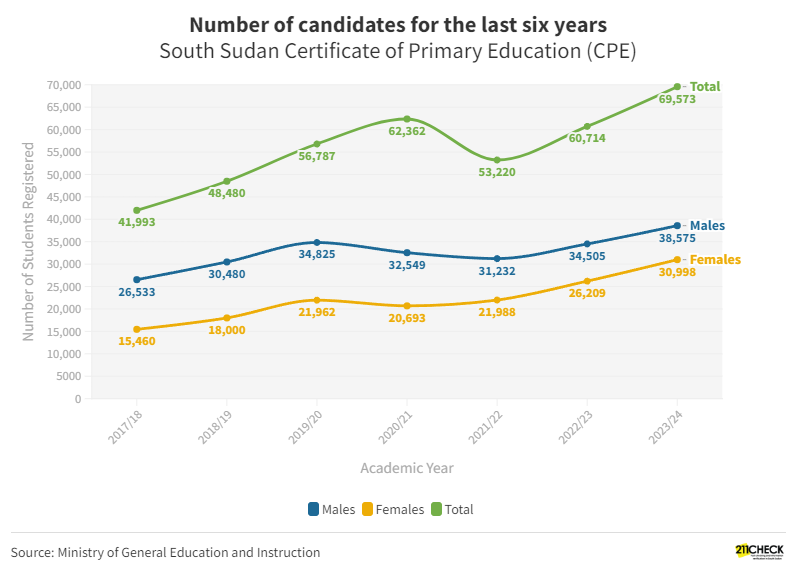
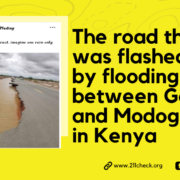
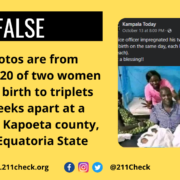

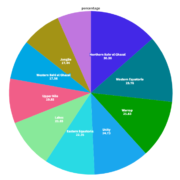
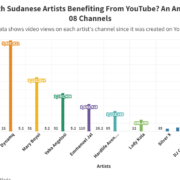
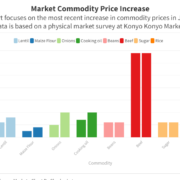

Deepak shinde sompur
Deepak shinde sompur ds5278226 @gamil.com
Deepak shinde sompur [email protected]
Deepak